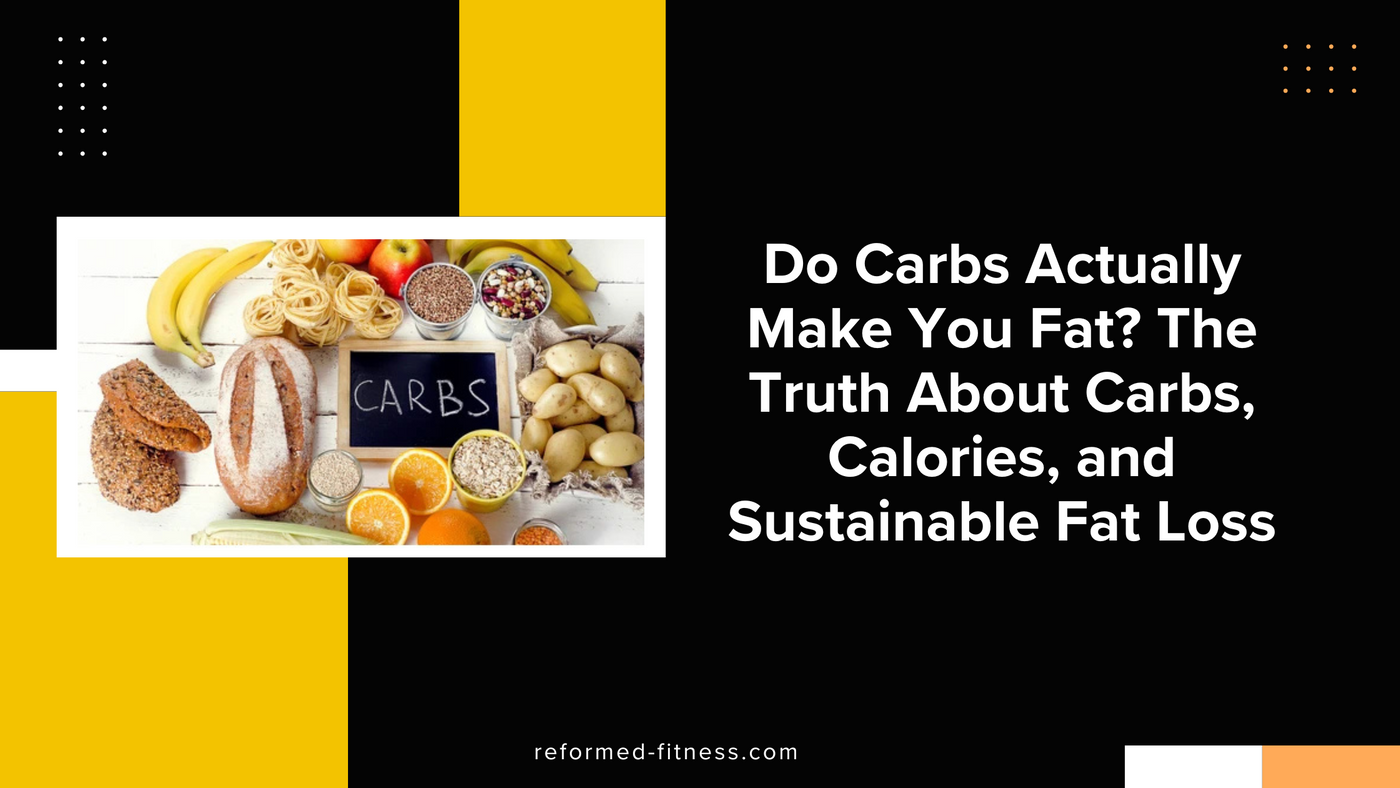As exercise physiologist we hear something like this every single week, “I feel like every time I try to lose weight, it’s just a list of what I can’t have.”
No bread. No oils. No pasta. No snacks. And definitely no dessert.
It’s as if carbs themselves are to blame for weight gain. And that belief whether it’s pushed by trendy diets or well-meaning influencers keeps people stuck in a cycle of restriction, burnout, and rebound weight gain.
But here’s what the science says: Carbs don’t make you fat. Excess calories do.
Let’s walk through it.
The Physiology: How Your Body Handles Carbs
Carbohydrates are the body’s preferred and most efficient energy source, especially for your brain, nervous system, and muscles during exercise.
When you eat carbohydrates, your body breaks them down into glucose. That glucose is then either:
- Used immediately for energy
- Stored as glycogen in your muscles and liver
- Or, if energy needs are already met and glycogen stores are full, converted into fat through a process called lipogenesis
Here’s the key point: Lipogenesis is extremely inefficient in humans. A study published in The Journal of Clinical Investigation found that this conversion only happens in significant amounts when someone is consistently in a calorie surplus and already consuming very high levels of carbohydrates.
In other words: your body doesn’t immediately “turn carbs into fat” under normal eating conditions. Fat gain occurs when your total energy intake exceeds your energy expenditure, regardless of whether those calories come from carbs, protein, or fat.
The Research: Carbs vs. Calories
A pivotal study published in The New England Journal of Medicine (Hall et al., 2009) assigned more than 800 participants to different diet groups:
- High-carb, low-fat
- Low-carb, high-fat
- Moderate-carb, moderate-fat
- High-protein, moderate-carb
Each group followed a calorie deficit of 750 kcal/day. After 2 years, all participants lost weight at similar rates. The macronutrient ratios made no significant difference in the amount of fat lost. The researchers concluded:
“Reduced-calorie diets result in clinically meaningful weight loss regardless of which macronutrients they emphasize.”
This has been confirmed repeatedly. A 2017 meta-analysis in Obesity Reviews analyzed 32 randomized controlled trials comparing low-fat vs. low-carb diets and found that both worked—as long as participants adhered to a calorie deficit (Bueno et al., 2013).
Why Carbs Are Important Especially If You Strength Train
Cutting carbs doesn’t just make fat loss harder—it can also make you feel worse:
- Carbs are the primary fuel source for moderate to high-intensity exercise, including strength training
- Low-carb diets can reduce training performance, recovery, and muscle protein synthesis
- Carbohydrates promote the release of insulin, which plays a critical role in muscle growth and preserving lean body mass
If you’re trying to build or maintain muscle, especially while in a calorie deficit, maintaining a moderate intake of high-quality carbohydrates—such as fruits, legumes, whole grains, and root vegetables—will support better performance, recovery, and long-term success.
So Why Do Low-Carb Diets Work?
They work for the same reason all diets work: they help you eat fewer calories.
Removing an entire macronutrient group makes calorie tracking simpler, and may reduce cravings in the short term. But that simplicity comes at a cost: social restriction, fatigue, difficulty sustaining exercise, and long-term adherence challenges.
Low-carb is a tool but it’s not a requirement. And for most busy professionals with full plates (figuratively and literally), it’s not sustainable.
Actionable Takeaways: How to Lose Fat Without Cutting Carbs
- Focus on total calorie intake, not eliminating a food group. A mild calorie deficit (200–500 kcal/day) is effective and sustainable.
- Include protein at every meal. It preserves lean muscle mass and keeps you fuller longer.
- Make carbs work for you, not against you. Time most of your starchy carbs (rice, potatoes, bread, etc.) around workouts or times of day you need energy.
- Choose carbs with fiber and volume. Whole fruits, legumes, and minimally processed grains help with satiety.
- Be consistent, not perfect. You can still eat pizza and lose fat—as long as it fits within your energy needs.
Final Thought
Carbs aren’t the problem. The real issue is overcomplication.
At Reformed Fitness, we help busy professionals lose fat, build muscle, and boost energy—without cutting out carbs, slashing calories, or following impossible routines.
Just two 30-minute strength workouts a week, a simple nutrition plan tailored to you, and no unnecessary rules.
Doing It Alone Is Hard! Ready To Have An Expert On You Side?
Book your FREE Discovery Call today and we’ll show you how two short workouts per week can finally deliver the results you’ve been chasing.

